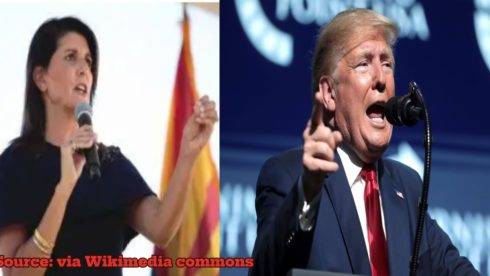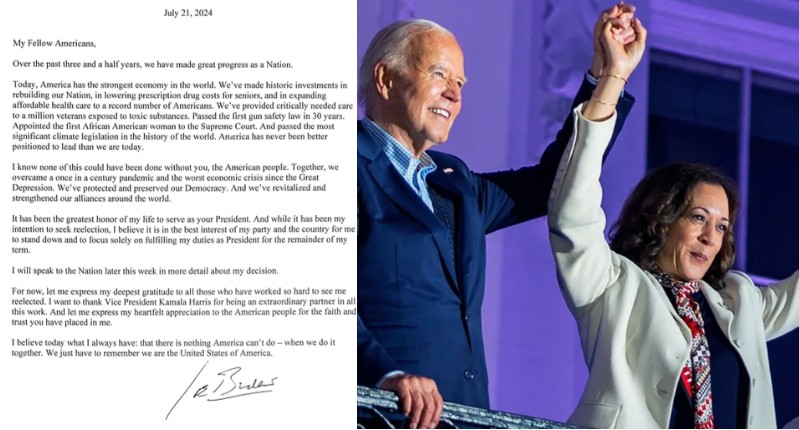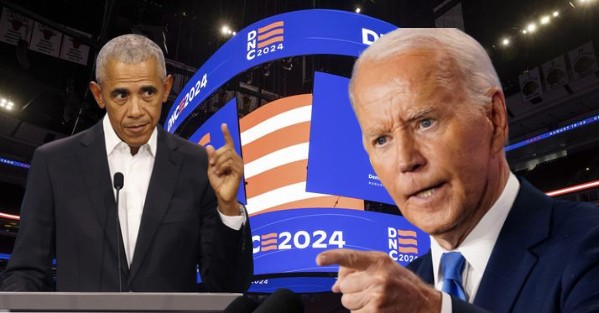Nikki Haley’s decision to withhold her endorsement of Donald Trump underscores a growing schism within the Republican Party. Her refusal to align herself with the former president, despite her status as a prominent party figure, signifies a departure from traditional party norms. By choosing not to endorse Trump, Haley is demonstrating a commitment to her principles over blind loyalty, signaling a shift in the party’s landscape. This move could potentially serve as a catalyst for other Republican leaders to reassess their allegiances and prioritize their values over political expediency.
With her presidential campaign suspended and her refusal to endorse Trump, Nikki Haley is making a strategic statement about the future direction of the Republican Party. By standing firm in her convictions, she is positioning herself as a voice for principled conservatism amidst the tumult of Trumpism. This move not only distinguishes her from other Republican leaders who have chosen to toe the party line but also sets the stage for a broader debate within the GOP about its identity and values. Haley’s decision could potentially reshape the party’s trajectory, as it grapples with the consequences of prioritizing loyalty to a single individual over its foundational principles.
Nikki Haley’s Break from Trump: A Blow to His 2024 Prospects
Former Ambassador to the United Nations Nikki Haley’s recent decision to distance herself from former President Donald Trump has sent shockwaves through the Republican Party, significantly impacting Trump’s potential bid for the presidency in 2024. Haley’s stature within the party and her broad appeal across different factions could have provided a crucial boost to Trump’s campaign. However, her refusal to endorse him signals a deepening divide within the GOP and reflects the increasing skepticism and discontent among Republicans regarding Trump’s leadership and the direction of the party.
Nikki Haley’s break from Trump highlights the shifting dynamics within the Republican Party, as prominent figures like her navigate a path forward amid a fractured political landscape. Her decision underscores the importance of unity and strategic alliances in the upcoming electoral cycle. As Republicans grapple with their identity and future direction, Haley’s move serves as a stark reminder of the challenges facing Trump and his supporters as they seek to maintain relevance and sway within the party.
Demanding Accountability: Nikki Haley’s Challenge to Trump in South Carolina
During her speech in South Carolina, Nikki Haley issued a bold challenge to former President Trump, urging him to garner the support of voters who had not previously backed him. This call for accountability resonates deeply within the Republican Party, signaling a shift in dynamics where leaders are expected to broaden their appeal and address the concerns of a wider electorate. By placing the onus on Trump to expand his base of support, Haley asserts herself as a principled leader willing to hold her party’s standard-bearer accountable, setting a precedent for integrity and transparency within the GOP.
Haley’s stance highlights a critical juncture in Republican politics, where leaders are increasingly required to demonstrate their commitment to inclusivity and representation. By challenging Trump to reach out to previously overlooked voters, she positions herself as a forward-thinking figure dedicated to the party’s growth and relevance in an evolving political landscape.
Trump’s Response: Unlikely Moderation
Despite Nikki Haley’s plea for moderation and efforts to engage doubtful voters, the likelihood of Trump altering his approach seems slim, given his past behavior. Throughout his tenure, Trump has consistently reinforced divisive rhetoric and embraced conspiracy theories, indicating a steadfast commitment to his unconventional style. This steadfastness, while appealing to his base, risks estranging moderate Republicans and independents, who may perceive such tactics as detrimental to national unity and bipartisan cooperation.
Trump’s refusal to pivot towards a more moderate stance not only jeopardizes his appeal to a broader electorate but also deepens the existing political polarization. By doubling down on divisive rhetoric, he exacerbates societal divisions and widens the ideological chasm within the Republican Party. Consequently, his reluctance to embrace moderation not only poses challenges for his electoral prospects but also undermines efforts to foster a more united and inclusive political discourse.
Nikki Haley’s Stand Against Trump: A Glimpse into Republican Party Division
Former Ambassador to the United Nations, Nikki Haley’s recent decision to withhold her endorsement of Donald Trump serves as a poignant illustration of the widening chasm within the Republican Party. In a landscape where loyalty to Trump has been a defining factor, Haley’s divergence marks a pivotal moment, signaling a shift towards a more principle-driven approach within the GOP. By choosing to prioritize values over blind allegiance, Haley is emblematic of a faction within the party seeking to redefine its identity beyond the shadow of the former president.
This fracture within the Republican Party not only underscores the complexities of its internal dynamics but also carries profound implications for its future trajectory and electoral viability. With some stalwarts continuing to rally behind Trump, while others like Haley opt for a more independent stance, the GOP finds itself at a crossroads, grappling with questions of unity and ideological coherence. How this divide plays out in the coming years will undoubtedly shape the party’s ability to resonate with voters and navigate the shifting political landscape effectively.
Nikki Haley’s Political Calculus
In declining to endorse Trump, Haley is embarking on a strategic gamble that may redefine her political trajectory. Her calculated stance underscores her commitment to principle over party allegiance, a move that could either bolster her reputation as a principled leader or distance her from the mainstream Republican base. By refusing to align herself with Trump, Haley is signaling to voters her willingness to break ranks with the dominant narrative within the party, positioning herself as a viable alternative for those seeking a more centrist Republican voice. This bold maneuver demonstrates Haley’s willingness to challenge conventional norms and chart her own course in the political landscape.
Haley’s decision to defy Trump’s influence speaks volumes about her willingness to assert independence and stand on her own convictions. By carving out a position outside of Trump’s shadow, she is positioning herself as a figure capable of appealing to a broader spectrum of voters who may be disillusioned with the current state of partisan politics. While her stance may invite criticism from within her own party, it also presents an opportunity for Haley to distinguish herself as a leader unafraid to prioritize principle over political expediency, potentially elevating her stature as a credible contender for future leadership roles within the Republican Party.
Table of Contents
Discover more from OGM News NG
Subscribe to get the latest posts sent to your email.














